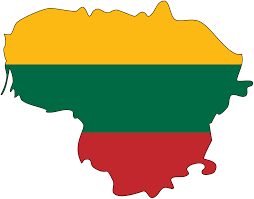Lithuania is positioning itself as the fastest point of entry to the EU for Fintech – it currently offers a set-up time that is 2-3 times faster than any other jurisdictions in the EU. The Fintech Times interviewed Invest Lithuania to know more about the future of Lithuanian fintech ecosystem
What is the current status of your country on the global Fintech arena?
Lithuania has a raft of incentives and regulations that have been implemented to make it an attractive hub for both startups and existing businesses outside of the EU. It is Bank of Lithuania, the regulatory body responsible for overseeing the sector, which has been the driving force behind these initiatives, and they have really started to bear fruit. Talking hard numbers, in 2017 Lithuania issued 42% more licenses year-on-year. As of the beginning of 2018, there were 117 Fintech companies operating in the country, and the number is growing as we speak.
2) Please describe your legal Fintech framework and opporunities for startups (sandbox, acceleration, incubation, entrepreneurship terms etc?)
Fintech companies who want to establish operations in Lithuania can benefit from the “Newcomer Programme”, this is a one-stop-shop program run by the Bank of Lithuania that provides close support and guidance on everything businesses need to secure a great launch and continued success for their operations. They also enjoy a “regulatory sandbox” for their first year, which gives them room to set up and grow their operations free from regulatory sanctions. Meanwhile, all Fintechs have the opportunity to perform KYC remotely, giving them added flexibility. On top of this there is very much a level playing field for all participants in the financial sector – CENTROlink, the bank’s payment system – offers the same terms for both non-bank institutions and bank and credit institutions.
And when it comes to operational benefits, Lithuania can also offer a very pronounced strategic advantage. Fintech companies can gain direct technical access to SEPA, and there is full SEPA reachability to 34 countries. Both SEPA Credit Transfers and SEPA Direct Debits can be made, and Fintech companies have the ability to issue their own IBANs via the Bank of Lithuania’s API. Getting a Fintech company up and running in Lithuania is also quick and hassle-free: with a 3-month timeframe for gaining a PI or EMI license, the country is 2-3 times faster than other EU jurisdictions. And for entrepreneurs and Fintech talent, the government has launched a “startup visa” which will fast-track their visa applications, helping them to settle and grow their business with speed and security.
What is the future and how do you see your country in the global Fintech ecosystem in 3 years?
Lithuania is doing all that it takes to ensure that it will become one of the main EU Fintech hubs for payments, challenger banking and POS businesses. And its focus is not only on attracting foreign companies, but also nurturing the creation of strong local Fintechs. Just as Singapore is the gateway to Asia, Lithuania aim is to become a dominant gateway to the EU market- a target that it is well on its way to achieving.




